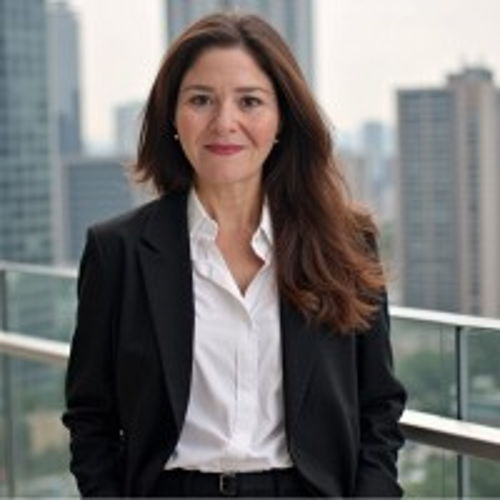Janette Singletary

Janette Singletary is a seasoned healthcare professional with over 25 years of dedicated service at Tampa General Hospital, I’ve grown from a scheduler to the Manager of Perioperative Scheduling within the Surgical and Procedural Department—an evolution shaped by grit, collaboration, and a deep commitment to excellence. Today, I lead a high-performing team that coordinates more than 60,000 surgical and procedural cases annually across 80+ procedure rooms, including 17 surgical robots. In a Level 1 trauma center where timing and precision can be lifesaving, my role is about more than logistics—it's about ensuring every patient is in the right place, at the right time, with the right resources.
I’m proud to be part of transformative initiatives like the Taneja Tower Operations Project, where I’m helping plan and coordinate 31 new operating rooms to expand TGH’s capacity and elevate care delivery. My leadership philosophy is rooted in the principle: “Management is doing things right; leadership is doing the right things.” This mindset guides me as I mentor others, build smarter systems, and foster transparency and teamwork across departments.
Beyond operations, I’m a lifelong learner currently pursuing a degree in Healthcare Administration from Columbia Southern University. I’m also an active member of the National Society of Leadership and Success and Omega Nu Lambda National Honor Society, where I continue to sharpen my leadership and communication skills. I believe in empowering others—often before they believe in themselves—and strive to be a trusted advocate for my team’s growth and success.
Whether orchestrating complex scheduling logistics or helping departments build their own playbooks for success, I bring a global perspective, institutional knowledge, and a passion for innovation that reflects the spirit of the TGH family.
• Columbia Southern University
• The National Society of Leadership and Success
• Omega Nu Lambda
What do you attribute your success to?
I attribute my success to persistence, adaptability, and a genuine commitment to both patient care and team collaboration. Over 25 years in perioperative scheduling, I’ve learned that no one succeeds alone, working closely with surgical teams, nurses, and administrators taught me the value of clear communication and mutual respect. I’ve also had the privilege of mentoring newer staff, which reminded me how important it is to lift others as you grow. Whether it’s navigating complex schedules or pursuing my degree in Health Care Administration, I’ve always believed in showing up, staying curious, and never losing sight of the bigger picture: improving outcomes for patients and supporting the people who make that possible.
What’s the best career advice you’ve ever received?
The best career advice I’ve ever received is: “Say it even if your voice shakes.” It reminded me that courage isn’t about being fearless, it’s about speaking up even when you’re afraid. Whether it’s advocating for yourself in a meeting, sharing a bold idea, or asking for an opportunity you’re not sure you’ll get, this advice has pushed me to grow. It taught me that progress often begins with discomfort, and that my voice deserves space, even when it trembles.
What advice would you give to young women entering your industry?
My advice to young women entering the healthcare industry, especially in perioperative services, is to believe in your voice, trust your instincts, and develop a thick skin. This field can be fast-paced, high-stress, and sometimes intimidating, but don’t let that shake your confidence. You’ll encounter strong personalities and tough situations but remember you belong in every room you walk into. Learn everything you can, ask questions, and don’t be afraid to advocate for yourself and your patients. Respect is earned through consistency, professionalism, and resilience, and the more you show up with integrity and strength, the more you’ll thrive.
What are the biggest challenges or opportunities in your field right now?
One of the biggest challenges in perioperative services is training staff to develop a global view of the surgical schedule. Understanding how equipment, instruments, and supplies are all interconnected. A single change in the schedule can create a ripple effect across multiple departments, impacting everything from room turnover to patient flow. Coordinating surgeons’ availability with limited open surgical time requires constant problem-solving, clear communication, and sometimes out-of-the-box thinking. At the same time, there's a major opportunity to improve systems through technology and data-driven decision-making. As we adopt more advanced scheduling tools and electronic health records, we can streamline workflows, reduce delays, and enhance patient outcomes. The key is balancing innovation with empathy, making sure that while we improve processes, we never lose sight of the human side of healthcare. When teams are empowered with both the tools and the perspective to see the bigger picture, we create a more resilient, responsive, and patient-centered surgical environment.
What values are most important to you in your work and personal life?
In both my work and personal life, I value integrity, empathy, transparency, and continuous growth. Integrity means doing the right thing, even when it's hard or when no one is watching. In healthcare, that translates to advocating for patients, being honest in communication, and holding myself accountable to high standards. Transparency is equally important. I believe in open, honest communication, whether it's sharing challenges with the team, discussing changes with stakeholders, or being clear with patients and families. Transparency builds trust, fosters collaboration, and helps prevent misunderstandings that can impact care. Empathy is essential. Whether I'm supporting a colleague through a tough day or helping a patient navigate a complex procedure, I believe in meeting people where they are and listening with compassion. It’s what builds trust and strengthens teams. And finally, I value growth, both professionally and personally. I’m always looking for ways to improve systems, learn new skills, and challenge myself. I believe that when we stay curious and open to change, we not only become better at what we do, but we also inspire those around us.